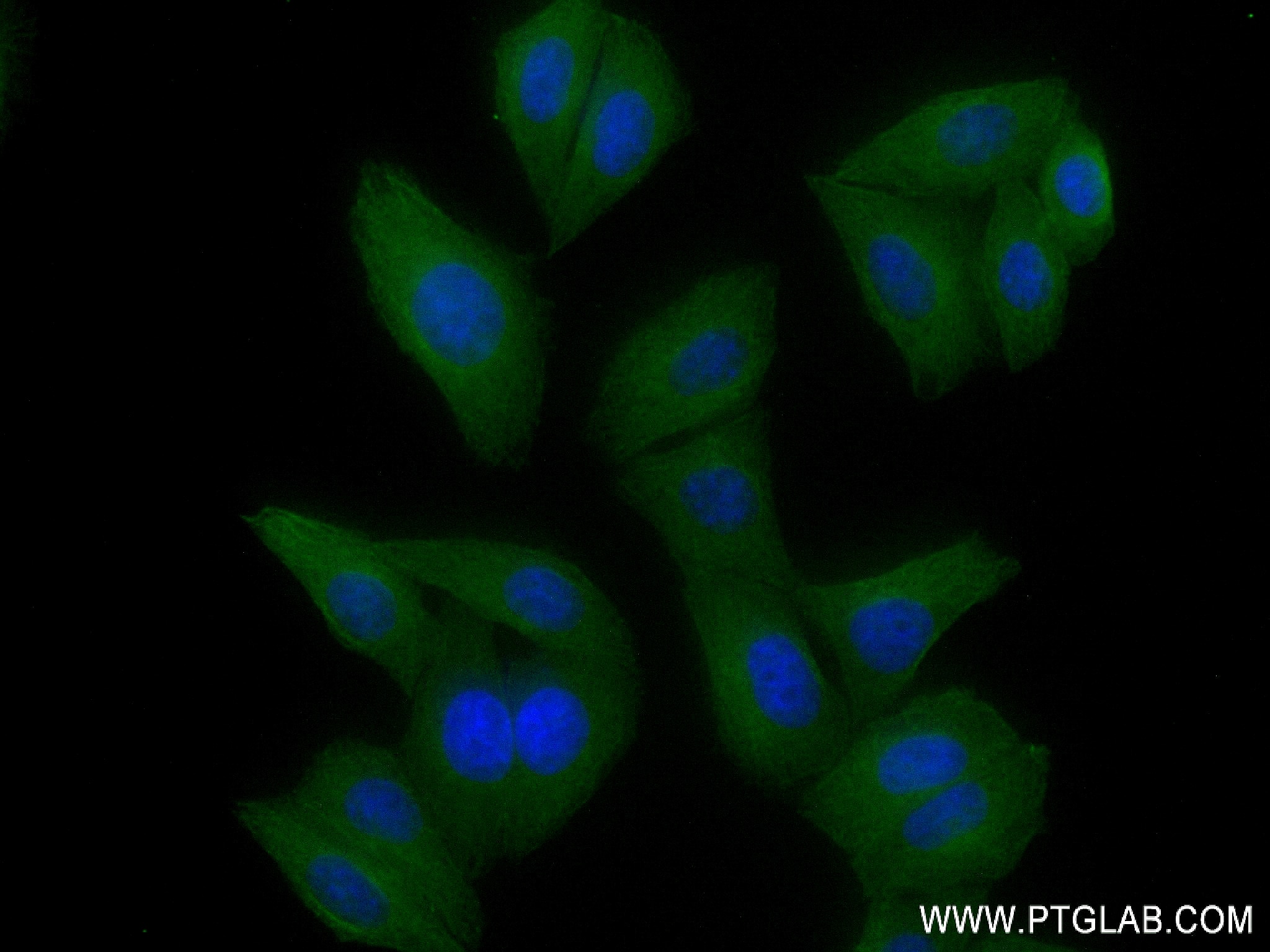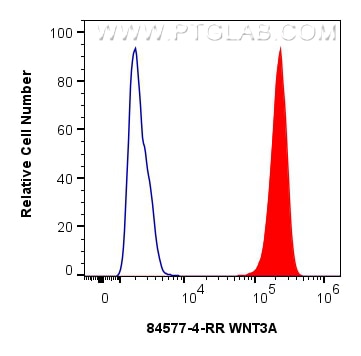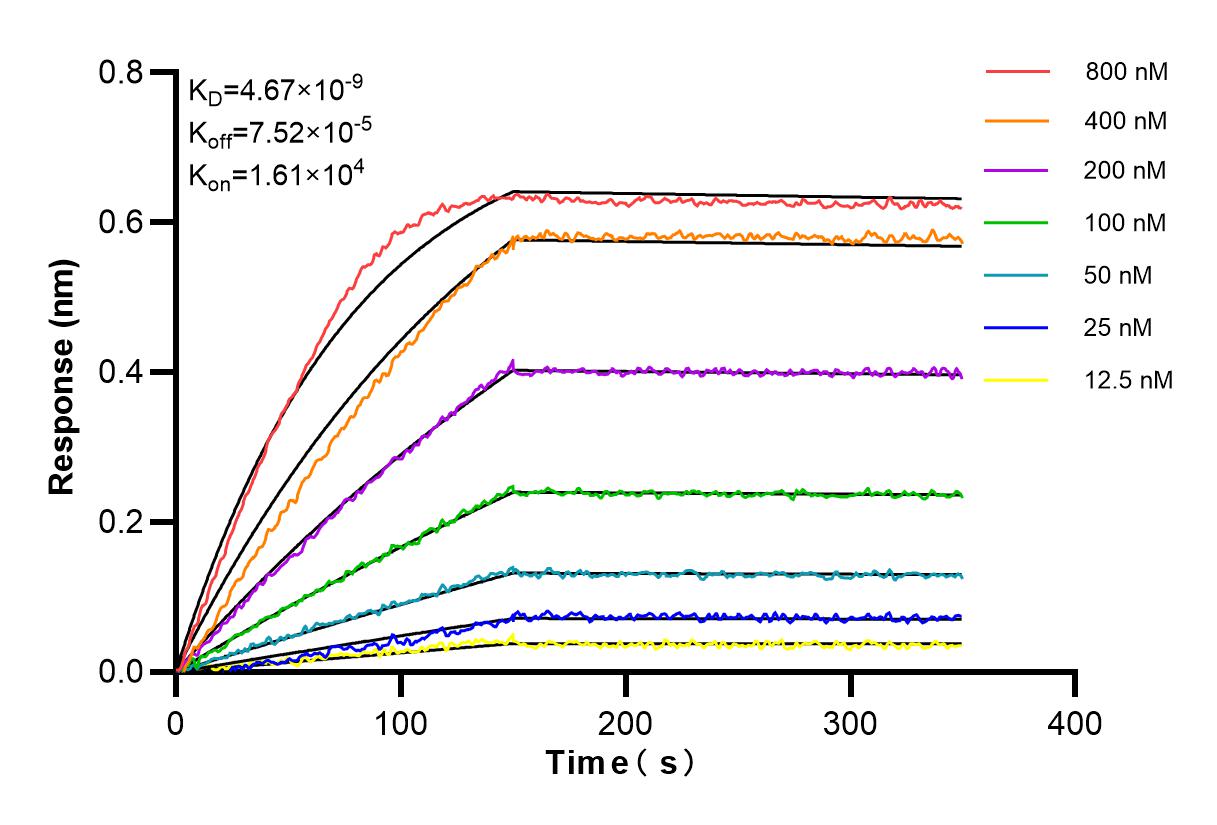Validation Data Gallery
Tested Applications
| Positive IF/ICC detected in | HepG2 cells |
| Positive FC (Intra) detected in | HeLa cells |
Recommended dilution
| Application | Dilution |
|---|---|
| Immunofluorescence (IF)/ICC | IF/ICC : 1:125-1:500 |
| Flow Cytometry (FC) (INTRA) | FC (INTRA) : 0.25 ug per 10^6 cells in a 100 µl suspension |
| It is recommended that this reagent should be titrated in each testing system to obtain optimal results. | |
| Sample-dependent, Check data in validation data gallery. | |
Product Information
84577-4-RR targets WNT3A in IF/ICC, FC (Intra), ELISA applications and shows reactivity with human samples.
| Tested Reactivity | human |
| Host / Isotype | Rabbit / IgG |
| Class | Recombinant |
| Type | Antibody |
| Immunogen |
CatNo: Ag25051 Product name: Recombinant human WNT3A protein Source: e coli.-derived, PET30a Tag: 6*His Domain: 250-350 aa of BC103921 Sequence: RGWVETLRPRYTYFKVPTERDLVYYEASPNFCEPNPETGSFGTRDRTCNVSSHGIDGCDLLCCGRGHNARAERRREKCRCVFHWCCYVSCQECTRVYDVHT 相同性解析による交差性が予測される生物種 |
| Full Name | wingless-type MMTV integration site family, member 3A |
| Calculated molecular weight | 352 aa, 39 kDa |
| GenBank accession number | BC103921 |
| Gene Symbol | WNT3A |
| Gene ID (NCBI) | 89780 |
| RRID | AB_3672077 |
| Conjugate | Unconjugated |
| Form | |
| Form | Liquid |
| Purification Method | Protein A purfication |
| UNIPROT ID | P56704 |
| Storage Buffer | PBS with 0.02% sodium azide and 50% glycerol{{ptg:BufferTemp}}7.3 |
| Storage Conditions | Store at -20°C. Stable for one year after shipment. Aliquoting is unnecessary for -20oC storage. |
Background Information
WNT3A belongs to wingless-type MMTV integration site family, and abnormal Wnt signalling is often associated with severe human diseases, including cancer, osteoporosis and other degenerative disorders. WNT3A is a secreted glycoprotein that is involved in both canonical and non-canonical Wnt signaling pathways. The canonical Wnt pathway, also known as the β-catenin-dependent pathway, regulates gene expression by stabilizing β-catenin, which then translocates to the nucleus and interacts with transcription factors like TCF/LEF. It's shown to promote trophectoderm formation in embryonic stem cells. It's reported that the canonical Wnt/β-catenin signaling pathway also contributes to the carcinogenesis and progression of lung cancer cell lines. The non-canonical pathways, which are β-catenin-independent, are involved in cytoskeletal organization and cell polarity.
Protocols
| Product Specific Protocols | |
|---|---|
| IF protocol for WNT3A antibody 84577-4-RR | Download protocol |
| Standard Protocols | |
|---|---|
| Click here to view our Standard Protocols |



